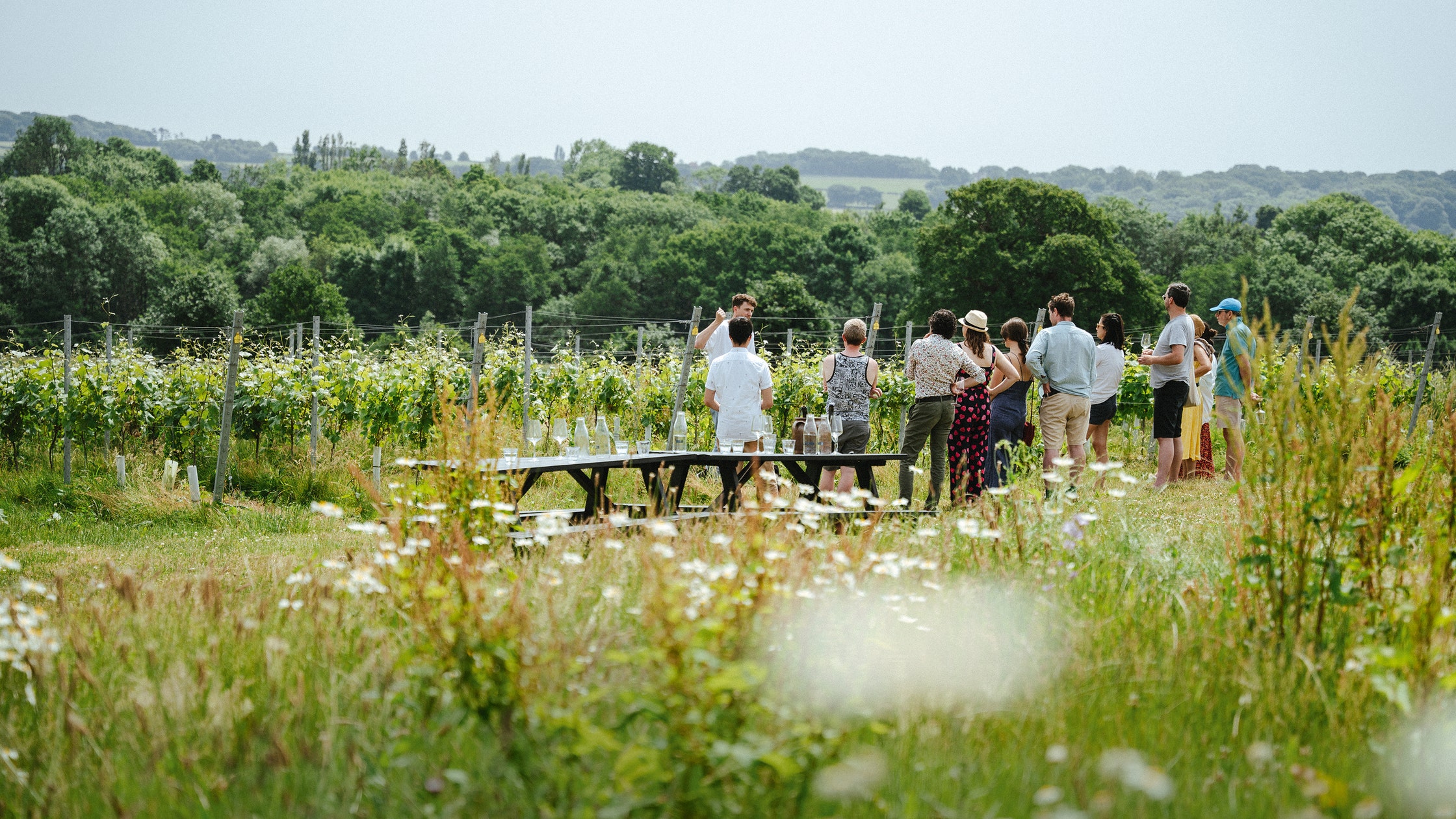The New Champions of English Wine
England’s south coast has always offered an enticing prospect to visitors: green and fertile, with softly rolling hills and a kindly, if damp, climate. The Romans crossed the Channel, despite believing that it teemed with monsters; a millennium later, William of Normandy and his army arrived, bringing barrels of wine because a conquering army needs more than weapons. There were a few vineyards in England: in 1086, the Domesday Book included more than 40 of them. But who knows what the wine tasted like? The Normans were probably wise to bring their own.
Nonetheless, beneath the grass, wheat, and orchards lies a different story: a bedrock of chalk, more than 65 million years old, the glowing white remains of ancient creatures that inhabited a long-vanished sea. That chalk runs beneath the Channel, rears up as the white cliffs of Dover, and connects southern England with a region of France that is well known for its wines, Champagne.
It has taken time, and a warming of the climate, for the English to conclude: if Champagne can make great sparkling wine from Chardonnay, Pinot Noir, and Meunier grapes, then so can we. Today, there are more than 200 wineries in the UK, primarily in the four coastal counties of Kent, West and East Sussex, and Hampshire. They typically follow Champagne production methods, which are time-consuming and expensive—but worth it.
“Champagne has been doing this for hundreds of years,” says Dermot Sugrue, one of England’s finest winemakers. “We are just getting started.” However, it’s a promising beginning, with wines that win awards and occasionally beat Champagnes in blind tastings by experts. “Initially, it was all wealthy individuals seeking to own a vineyard,” says Hugo Stewart of Domaine Hugo—though he does not fit that mold, as his superb sparkling wine originates from what was previously a pig farm. He notes, “Now, younger people are getting involved with smaller operations, and that’s genuinely exciting.”
Sugrue, an enthusiastic Irishman whose wines invite comparison with France, has built his career in parallel with the rise of English wine. He gained attention as a winemaker at Nyetimber and then spent 16 years at Wiston Estate, crafting wine in a previously cold storage turkey shed. Currently, his company, Sugrue South Downs, operates a small vineyard, Bee Tree, with a tasting room that will offer tours.
Featured Vineyards and Wineries
Black Chalk, Hampshire
“I’m not tempted to make non-vintage wines,” Jacob Leadley, Black Chalk’s CEO and lead winemaker states, “not least because that’s what everyone else is doing.” Therefore, they focus on crafting exceptional still and sparkling wines. Situated alongside the River Test, the locale is stunning, featuring a small tasting room that highlights local produce and becomes a casual restaurant on certain nights. Visitors can enjoy luxurious treehouses nearby that overlook the vineyard.
Ridgeview, East Sussex
The Roberts family, pioneers of English wine since 1995, have created a vineyard restaurant with a rooftop terrace to showcase their acclaimed sparkling wines. Their developments include collaborating with local spa hotels to grow their own-label sparkling wine, thus enhancing the wine tourism experience.
Lympstone Manor, Devon
This stunning Grade II-listed Georgian manor, acquired by chef Michael Caines, features planted vines producing still and sparkling wines. Visitors have access to vineyard tours, wine tastings, and exquisite dining experiences at Caines’s Michelin-starred restaurant.
Wiston Estate, West Sussex
On the South Downs, Wiston Estate has transformed its facilities since planting vines in 2006. It offers wine tastings, tours, and an outdoor restaurant recognized in the Michelin Guide, creating a welcoming experience for wine enthusiasts.
Tillingham, East Sussex
The estate integrates eco-conscious practices, with wines available on tap to reduce waste. Additionally, it features a field-to-fork restaurant offering seasonal menus paired with carefully curated wine flights, all amidst breathtaking countryside views.
Simpsons Wine Estate, Kent
Back to their roots, Ruth and Charles Simpson returned from making wine in France to create lasting quality wines. Their vineyard offers tours, tastings, and unique events like Sunset Sessions that combine local food and wine in an engaging atmosphere.
Champagne Connection
Various regions in Southern England are beginning to catch the attention of traditional Champagne producers, with some planting vines in the UK, indicative of the potential seen in English wines.




